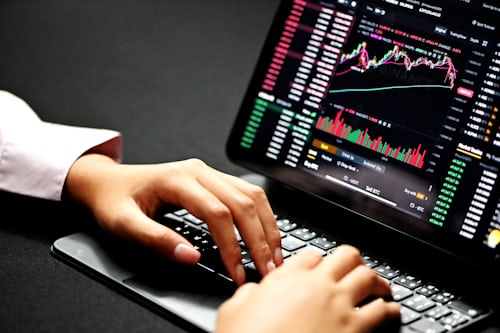About
What influences does the virus have on the economy?
Since the Corona virus has been spreading in Europe, new reports have been coming in every hour, unsettling many investors. What impact has the virus had on the economy so far and what is the current conceivable outcome?
50 percent of those infected in China have since recovered
In order to assess the development, it is worth taking a look at the country where the virus broke out. In China, the number of infections is now declining. The number of people who have recovered has been higher than the number of newly infected people for several days. More than 50 percent of those affected are now healthy again. The Robert Koch Institute currently assesses the danger to the health of the population within Germany as moderate. A further spread of the pathogen is to be expected. That the virus has an impact on economic processes is now clear: the media are dubbing it a stress test for industry. German companies that are active in China or purchase products from affected countries and regions are currently struggling with delays in production processes and thus with sales losses.
Economic consequences
Short-term economic consequences are to be expected as a result of the Corona virus and its partly direct economic impact. By shutting down economic activity in large parts of China, the virus has a noticeable impact on economic growth in the first quarter of 2020. The weakening of the Chinese market has global consequences, as many products are sourced from there that are sold in the rest of the world or are integrated into supply chains. Most analysts expect that many companies will have to revise down their sales and profit forecasts for the first quarter. However, the slowdown in growth in the first quarter may have an impact on developments in the rest of 2020. Measures taken by governments and central banks may soften the economic impact in the course of the year. Furthermore, there may be catch-up effects in the economy, for example through an acceleration of production. As past crises of this kind (e.g. SARS in 2003) have shown, such catch-up effects are conceivable once the situation has normalised.
Concern about recession: avoid short-term panic selling
The stock markets in https://exnesslatam.com/cuenta-pro/ reflect the concern about the coming developments. Compared to the highs, the DAX has lost more than 15 percent at times, the EuroSTOXX 50 has also lost almost 15 percent at times. The stock exchanges in China lost less than proportionally in value last week compared to Europe. At present, no one can accurately estimate the delayed consequences of the Corona virus. One example to breathe a sigh of relief: Tagesschau Online reported on 27 February that Chinese production at BMW and VW had already started up again since 17 February. Investors should continue to monitor developments closely, but react prudently. The current losses on the stock markets are driven by concerns about a possible recession. Long-term oriented investors should not be impressed by short-term panic selling on the stock markets, but should remain calm.


